Activities
2026
Guest lecture by Birgit Gabriel: ‘Dealing with linguistic diversity in organisations – the example of ARTE’
As part of the lecture Introduction to Intercultural Communication and Intercultural Management, which is hold by PD Dr. Martina Maletzky de García (on the left), an exciting guest lecture by Birgit Gabriel took place on 14 January 2026. Under the title ‘Dealing with linguistic diversity in organisations – the example of ARTE’, she gave students a practical insight into the linguistic and cultural diversity of the European cultural broadcaster ARTE.
Ms Gabriel explained how linguistic diversity in a binational organisation is not only a logistical challenge, but also a great opportunity for intercultural learning and cooperation. Using ARTE as an example, she showed how institutional structures, communication strategies and translation processes are designed to promote equal exchange between the French and German editorial teams.
She paid particular attention to the everyday practice of language switching, the role of multilingualism in meetings and the importance of language skills for intercultural management. It became clear that at ARTE, language is not only a tool for communication, but also a central component of the corporate culture.
The lecture offered students valuable insights into the connection between theory and practice in intercultural communication – and showed how linguistic diversity can be successfully lived and used as a resource.
International Comfy Corner relaunched on January 13, 2026 – International and German students exchange ideas
On the evening of January 13, 2026, the second event in the International Comfy Corner series took place, organized by the Chair of Intercultural Communication and International Support Services. The aim of the series is to bring international and German students together, promote exchange, and make it easier for them to settle in at the university. The International Comfy Corner takes place in various formats. Before Christmas, students got together to do crafts as part of the World Wide Winter Market. On January 13, a game night was held to facilitate exchange between students. More than 20 students took part.
After an official welcome by Barbara Bauersachs, the evening began with icebreaker games that facilitated networking and broke down inhibitions. The main part of the evening focused on board and group games that promoted teamwork, communication, and intercultural exchange. A buffet with snacks provided refreshments.
The next International Comfy Corner event will take place on February 6. During the exam period, the focus will be on stress management, mindfulness. A yoga session is planned.
The International Comfy Corner is funded by the University of Passau's Teaching Innovation Pool.
2025
Research visit by Professor Barmeyer to the IAE / University of Bordeaux
As part of his research semester, Professor Barmeyer spent an enriching few weeks at IAE Bordeaux from 19 November to 19 December 2025 at the invitation of Dr Emmanuelle Sauvage. The aim of the visit was to advance research on intercultural management with Dr Sauvage, work on publications and participate in research seminars at various research centres. On 27 and 28 November 2025, he had the opportunity to participate in a colloquium organised by Professors Yves Davo and Franck Duquesnois entitled ‘Les dynamiques des identités en contexte de crises’ (The dynamics of identities in times of crisis). The diverse dimensions of crises in a wide variety of areas (language, ethnicity, indigenous peoples, gender, democracy, etc.) and how to deal with them were examined. On 28 November, he also attended a colloquium on ‘Multilingualism in European Universities’ organised by the PoLLinguEES research centre, which is headed by Professor Martine Derivry and Dr Emmanuelle Sauvage. On 2 December, he took part in a ‘Journée de recherche en marketing du vin’ organised by the IRGO (Institut de Recherche en Gestion des Organisations) research centre. The event underlined the challenges facing Bordeaux wine in a globalised world and changing consumer behaviour. On 12 December 2025, Professor Barmeyer gave a lecture at the PoLLinguEES research centre's colloquium on ‘Words and Meanings in Organisation and Management by French and German Managers. The case at ARTE. What can this case teach us regarding European university policies?‘ On 15 December, he gave a lecture at IRGO on the topic of ‘Paradigmes scientifiques et perspectives multiparadigmatiques en management interculturel. Réflexion conceptuelle et application’.
The research stay in Bordeaux provided numerous interesting impulses for research and teaching. It served to expand and deepen the network for Passau students and doctoral candidates within the framework of the Erasmus programme and to advance international research. Many thanks to Dr Emmanuelle Sauvage (IAE Bordeaux) for organising and supervising the stay, and to Iryna Danylyshyna from the Welcome Centre for International Researchers at the University of Bordeaux.
Visit to the doctoral colloquium by Professor Ann Langley
On December 9, 2025, participants in the doctoral colloquium of the Chair of Intercultural Communication had the opportunity to engage in a virtual session of personal academic discussion with renowned Professor Ann Langley (HEC Montréal). She is known for her strategy and organizational research (especially Strategy as Practice and Organizational Change) in dynamic, complex, and often pluralistic contexts. She places a strong focus on processes, the practice of strategic action, and methods for capturing these dynamics.
In preparation, relevant articles by the scientist had been presented and discussed beforehand, which then served as the basis for the joint session and exchange.
During the two-hour session, Professor Langley provided insight into her various publications, their content, and the background to their creation. The doctoral students took the opportunity to ask questions and obtain recommendations for their own projects and plans. The inspiring exchange provided valuable insights and food for thought for all those present and will continue to have a long-term impact on their work.
We would like to thank Professor Ann Langley for her valuable time, insightful suggestions, and enriching recommendations.
Intercultural workshop at BAYHOST and BTHA weekend seminar
From November 14 to 16, 2025, the annual weekend seminar for scholarship holders of the Bavarian Academic Center for Central, Eastern, and Southeastern Europe (BAYHOST) and the Bavarian-Czech Academic Agency (BTHA) took place in Passau. The Chair of Intercultural Communication also participated in this seminar, which in 2025 focused on the theme of “Career Start in an Intercultural Context”.
To kick off the event on Friday evening, PD Dr. Martina Maletzky de García provided an in-depth insight into the overarching topic of intercultural management in organizations. The lecture provided a comprehensive framework for the content of the weekend and clearly illustrated the reality of today's working world.
On Saturday morning, a workshop on intercultural leadership was held by research associates Tuzienka Chenet-Ugarte and Elisabeth Huber. Participants were given an overview of key leadership concepts, their cultural characteristics, and how to deal with them in an interculturally sensitive manner. Examples from the researchers' own work and ongoing projects illustrated the theoretical approaches and offered practical points of reference. The workshop concluded with an interactive exercise in which the scholarship holders reflected on their own cultural backgrounds and applied them to leadership issues.
We would like to thank our colleagues at BAYHOST for the successful organization and the opportunity to participate. The seminar offered valuable insights into different cultural perspectives and enriched our team in many ways.
Defense of Lynn Chahine's doctoral thesis: career paths of highly skilled migrants
On November 17, 2025, Professor Barmeyer was a member of the jury for Lynn Chahine's doctoral thesis defense on the topic of “Careers in Transition: A Multi-Study Examination of Highly Skilled Migrants' Experiences.” The other members of the jury were Akram Al Ariss and Sophie d'Armagnac (supervisors of the doctoral thesis, TBS Education), Hélène Langinier (EM Strasbourg Business School), and Marc Valax (University of Côte d'Azur), who also chaired the jury. In her dissertation, candidate Lynn Chahine examines the professional careers of highly skilled migrants in the context of post-migration. The research question at the heart of her work is: What processes, challenges, opportunities, and meaning-making practices do highly skilled people go through? She combines individual meaning-making processes with structural conditions—an integrative approach that goes beyond purely economic or political analyses of migration. Particularly noteworthy is the theoretical and empirical triangulation of three independent but interrelated studies: a systematic literature review, a qualitative study based on interviews with IT professionals in France, and a qualitative study among migrant entrepreneurs in Europe and the United States. The doctoral thesis makes a valuable contribution to career and migration research: it develops a multidimensional model of labor market integration and formulates a cyclical career model that goes beyond linear concepts.
Professor Barmeyer's research and teaching stay in Japan
As part of his sabbatical, Professor Barmeyer spent time in Japan from 21 October to 11 November 2025. At the invitation of Professor Rolf Schlunze, he taught various courses on the topic of “Constructive Interculturality” to Japanese and international students at Ritsumeikan University in Osaka. On October 29, 2025, he also gave a lecture at the colloquium “Learning from the hybrid manager” organized by the ManGeo Research group, entitled “Three Types of Boundary Spanning Managers in Multinational Companies.” In addition, he had the opportunity to exchange ideas with colleagues and students, especially master's and doctoral students, about their research work and to give them methodological, conceptual, and content-related advice. During his stay, he also gave lectures at universities at Kyoto University Business School and Tokyo Aoyama Gakuin University on the topic of intercultural case studies. In Osaka, he met with German Consul General Melanie Saxinger, who studied European Studies in Passau. In the city of Odate, he spoke with Japan's youngest mayor, Kensuke Ishida, about urban development. He was also fortunate enough to be able to take part in traditional Japanese ceremonies at a Buddhist centre led by the Buddhist priest, Hideaki Kuwana. Professor Barmeyer experienced omotenashi (おもてなし), a special form of hospitality that is deeply rooted in Japanese culture. Overall, the stay offered many insights into Japanese culture and provided intercultural inspiration for research and teaching.
Turkish-German Double Master - Winter Semester 2025/26
This semester, Prof. Christoph Barmeyer and research assistant Tuzienka Chenet Ugarte taught students in the double master's programme from 29 September to 3 October and from 13 to 17 October 2025. The introductory session covered important theories and concepts of intercultural communication and used country-specific examples to explain key areas of intercultural research. Through the discussion of selected theories and case studies, supplemented by practical exercises and reflections on their own intercultural experiences, students gained comprehensive knowledge and insight into the field of intercultural communication. In the second week of lectures, an overview of theories, concepts, developments, topics and forms of intercultural management in various scientific disciplines and cultural areas was provided, illustrated with empirical research results from the working contexts of international organisations.
The German-language double master's programme in Intercultural Management (IKM) was introduced in 2013 at the Turkish-German University (TDU) in Istanbul as one of the first programmes of its kind. As part of the Flying Faculty programme, the Chair of Intercultural Communication is represented every year in the winter semester for two weeks with two lectures on the topics of ‘Intercultural Communication and Cultural Comparison’ and ‘Intercultural Management’ and in the summer semester with a main seminar on ‘Intercultural Management’.
Research stay in Montreal and international networking
As part of the research project on the integration of migrants through financial institutions, Prof. Dr. Christoph Barmeyer and Elisabeth Huber visited Montreal, Quebec, Canada, from September 19 to October 2, 2025. The aim was to present the results of the previous year's field research and validate them on site, together with project partner Tobi Rodrigue from the Université du Québec à Montréal (UQAM). The focus was on two presentations at the Caisses Desjardins: The first at theComplexe Desjardins in Montréal with the interview participants, the second at the Société Historique Alphonse Desjardins in Lévis with strategic departments of the bank. Alphonse Desjardins (1854–1920) was inspired by the experiences of German cooperatives. In 1900, he founded the first credit union in Lévis. It is a nice allusion to history that 125 years later, in 2025, two German researchers, Professor Barmeyer and Elisabeth Huber, are interested in Desjardins, as the host, Claude Genest, Senior Advisor for Historical Heritage and Corporate Identity, put it. Both events offered a special opportunity to critically discuss the research results and secure support for the second phase of the research project, which includes the perspective of migrant bank members.
In addition to these presentations, the researchers strengthened existing contacts and established new collaborations. One highlight was the event organized by the Centre d'Études en Entrepreneuriat International et Interculturel, “À la découverte culturelle: explorer des avenues de collaborations pour les petites et moyennes entreprises québécoises”, at which Professor Barmeyer and Professor Kerstin Kuyken (UQAM) spoke about culture and its implications for entrepreneurship. The day was also marked by intensive exchanges with representatives from academia, including Professor Léo-Paul Dana (Dalhousie University), and the entrepreneurial community. Elisabeth Huber and Rosanna Schropp (doctoral student, ESG, UQAM) presented a poster on German culture and entrepreneurship.
Other items on the agenda included a visit toRevue Management International at HEC Montréal, made possible by Professor Franck Barès, Editor-in-Chief, and an exchange with renowned Professor Ann Langley (HEC Montréal). Elisabeth Huber also gave a lecture on “Culture and Management – a constructive intercultural perspective” in a master's course at UQAM with Tobi Rodrigue, providing students with new insights into current intercultural management research.
Overall, the visit, which was financially supported by the Bavarian Research Alliance and the Chaire de coopération Desjardins-Guy Bernier(ESG, UQAM), provided valuable impetus for the project, enabled practical insights, strengthened intercultural exchange, and laid the foundation for future cooperation.
Intercultural Days at the University of Passau: Researching multiculturality at the individual level
From July 21 to 23, 2025, Professor Christoph Barmeyer and Elisabeth Huber, together with Professor Luciara Nardon and Sasha Valgardsson from Carleton University, Ottawa, Canada, organized an extraordinary symposium at the University of Passau. The conference, titled “Opportunities and challenges of multiculturalism at the individual level. Implications for future research, education, and practice” focused on the topic of multicultural individuals. The event brought together leading researchers, doctoral candidates, and master’s students with backgrounds in over 10 countries to examine, discuss, and further develop this highly topical issue.
Across cultural boundaries, the opportunities and challenges that multicultural individuals bring with them were examined together in a lively interdisciplinary exchange and from different perspectives. Contributions addressed topics such as polyculturalism, cultural identity formation, multilingualism, global migration, and the role of multicultural individuals as bridge builders and drivers of innovation in an increasingly interconnected world. The diverse program ranged from exciting short lectures and interactive working groups to informal encounters at the “Intercultural Café,” walks, and joint dinners in a historic setting—Passau provided the ideal setting for this.
A retrospective video of the event is available.
Many thanks to all participants for their inspiring contributions, intensive discussions, and newly established connections. The discussions and ideas will have an impact far beyond this symposium!
We would also like to thank the Passau International Centre for Advanced Interdisciplinary Studies (PICAIS), the Neuburger Gesprächskreis, and the International Centre for Economics and Business Studies (ICEBS) at the University of Passau for their generous financial support of the event.
Research stay by Dr. Madeleine Bausch
From June 26 to July 11, 2025, Dr. Madeleine Bausch visited the Chair of Intercultural Communication. She is an assistant professor of international business at the Faculty of Economics at the University of Chile and received her doctorate from Prof. Barmeyer's chair in 2022. As part of the doctoral colloquium on July 1, 2025, she gave a presentation on “Culturally sensitive research in Brazil,” based on an article published jointly with Prof. Christoph Barmeyer and Prof. Dave Guttormsen in Qualitative Research in Organizations and Management: An International Journal (2024). In the master's lecture “Constructive Intercultural Management” on July 2, she gave a presentation on “International Transfer of Organizational Practices” and presented case studies of German “hidden champions” in Brazil based on her doctoral thesis. In addition to these presentations, her visit focused on academic exchange, particularly on ongoing publication projects and future collaborations with Prof. Barmeyer. We would like to thank Madeleine Bausch for her visit and the enriching exchange.
A different kind of doctoral colloquium – campus tour and pitches on the picnic blanket
On June 17, 2025, the doctoral colloquium of the Chair of Intercultural Communication took place in a very special format – outdoors, relaxed, yet scientifically inspired.
In bright sunshine, the group of doctoral students and team members first took the opportunity to discover the campus from a historical perspective. University archivist Mario Puhane took the participants on an exciting campus tour, providing fascinating insights into the history of the University of Passau. With a mixture of well-founded facts and exciting anecdotes, he brought the development of the university to life, from its historical origins to the modern university – a change of perspective that was not only informative but also inspiring.
Afterwards, the colloquium moved to the Innwiese, where the substantive work continued in a creative atmosphere during a joint picnic. The doctoral students presented their dissertation projects in compact pitch form, which led to stimulating discussions, valuable feedback, and new impetus for their research work. The informal setting created a special space for open conversations, new ideas, and mutual motivation.
It was a successful afternoon that showed once again that science thrives on exchange—and sometimes it flourishes best in the open air.
Research stay of Professor Luciara Nardon - Carleton University Ottawa
Professor Dr. Luciara Nardon (Carleton University Ottawa) spent several days at the University of Passau as part of the international visiting scholar program of the Faculty of Humanities and Social Sciences, giving a lecture and conducting two workshops.
Luciara Nardon is Professor of International Business at the Sprott School of Business and Co-Director of the Centre for Research on Inclusion at Work (CRIW) at Carleton University. She is the author or co-author of several academic articles and books, including Making sense of immigrant work integration (Palgrave, 2022), Working in a Multicultural World (University of Toronto Press, 2017), Managing in the Global Economy (Sharpe, 2006) and Management Across Cultures (Cambridge, 2010, 2013, 2016).
In the lecture “Making sense of immigrant integration” on July 17, 2025, the work integration of immigrants was highlighted as a process of awareness raising involving multiple actors (immigrants, organizations, communities and governments) and multiple levels (individual, interactive, organizational and institutional). She conducted two workshops as part of the doctoral colloquium of the Chair of Intercultural Communication on July 24, 2025: In an interactive presentation, titled “Facilitating Reflection and Sensemaking in Interviews”, she introduced interview tools designed to facilitate reflection and sensemaking. These tools support participants in articulating their implicit knowledge and feelings. These tools included clean language interviewing and arts-based methods supported by artificial intelligence, such as imaginative metaphor elicitation. The presentation also discussed how these approaches can be used in intercultural interviews. The “Extending the Researcher's Mindset” paper development workshop enabled participants to experience various research and interviewing tools in the context of their own research through a reflective process.
Overall, Professor Nardon gave students and doctoral candidates stimulating insights into her research. Her stay is connected to a joint international colloquium "Opportunities and challenges of multiculturalism at the individual level. “Implications for future research, education, and practice”, which she held with Professor Barmeyer at the University of Passau from July 21-24, 2025.
Lecture by Christian Schläger on the foundation's activities in Uganda
On July 07, 2025, Mr Christian Schläger (Project Manager for Value Transmission and Education at the Hans Lindner Foundation in Arnstorf) gave a specialist lecture on the recontextualisation of the foundation's activities in Kampala, Uganda, as part of the lecture ‘Introduction to Intercultural Communication’ by PD Dr Martina Maletzky de García.
Mr Schläger impressively illustrated how the foundation's own funding approaches must be adapted to the cultural, social and economic conditions in Uganda in order to achieve a sustainable impact on the ground. The focus was particularly on the challenges and strategies of context-sensitive project implementation.
A special feature of the event was the active involvement of the students: in group work phases, they discussed what adjustments are necessary when implementing foundation projects in an intercultural environment. The resulting discussions promoted a lively and practical exchange between theory and application.
We would like to thank Mr Schläger for his insightful contribution and the stimulating collaboration with the students.
EURAM Best Book Award 2025
At the 25th EURAM (European Academy of Management) Conference, which took place in Florence from June 22-25, 2025, Professor Christoph Barmeyer and Constanze Ruesga Rath were awarded the EURAM Best Book Award 2025 for their book "Key Questions and Inspiring Answers in Cross-Cultural Management. Conversations with Leading Women Scholars", which was published by Edward Elgar in 2024. The prize is awarded once a year by an international jury for an outstanding book.
The book offers an overview of the research field of Cross-Cultural Management and presents the biographical stages, research achievements and future recommendations of twelve renowned international female researchers who have significantly shaped the field through their topics, methods and commitment in the form of personal interviews. The photo shows Prof. Thomas Durand presenting the award to Prof. Christoph Barmeyer at the EURAM General Assembly on June 25, 2025 at the University of Florence.
YouTube Video
Québec National Day
As part of the Bavaria-Québec cooperation relationship, Prof. Christoph Barmeyer and Tuzienka Chenet Ugarte took part in the Québec National Day (Fête nationale du Québec) celebration in Munich on June 27, 2025. The event was opened by Geneviève Rolland, General Delegate of the Quebec Government Office in Munich, Tobias Gotthardt, Bavarian State Secretary for Economic Affairs, Regional Development and Energy, and Alain Sans Cartier, Quebec Deputy Minister for International Relations and Francophonie. As every year, the event enabled a stimulating exchange between various personalities and officials who are actively involved in a wide variety of projects in the Free State of Bavaria's cooperation with Québec, which has existed for many decades.
EURAM-Conference 2025: “Managing with Purpose”, University of Florence
For the 9th time, Professor Christoph Barmeyer, together with Professors Sylvie Chevrier (Université Gustave Eiffel, Paris-Est) and Mette Zølner (Aarhus University, Aarhus), organized a track as part of the EURAM conference (European Academy of Management). This time, the conference took place from June 22 to 25, 2025 at the University of Florence, Italy.
The track entitled "Management and cultures: qualitative organizational research" was dedicated to researching cultures in organizations using qualitative methods. Based on the assumption that management practices are culture-specific and require adaptation to local cultural contexts, the aim is to examine emerging management practices while taking cultural differences into account. Topics included interpretative approaches to understanding social cultures, the integration of refugees into the German context, characteristics and abilities of bicultural people, third culture individuals as global managers and constructive aspects of paternalistic leadership. Philosophical or methodological questions were also addressed in the presentations, such as the topic of a positive ontology for understanding the careers of qualified immigrants or the self-reflection and methodological challenges and possibilities of field research in organizations. The Chair of Intercultural Communication was also actively represented by Dr. Martina Maletzky de Garcia, Tuzienka Chenet Ugarte, Elisabeth Huber and the external doctoral candidate Birgit Gabriel. We would like to thank all participants for their interesting and valuable contributions and the constructive and inspiring discussions!
For several years, this section has been exploring the complex role of cultures in organizations using qualitative methods and has contributed to the development of a research community on intercultural issues. Next year (16.-19.6.2026) EURAM will take place in Kristiansand, Norway. We look forward to continuing the intercultural dialog and cooperation!
Award for the best case study: Airbus
Professor Ulrike Mayrhofer, Research Director of the GRM of the IAE Nice (Institut d'Administration des Entreprises, Université Côte d'Azur), and Professor Christoph Barmeyer received the award for the best case study on the European company Airbus from the Atlas AFMI Association and the CCMP (Centrale de Cas et de Médias Pédagogiques) at the international Atlas AFMI conference.
The case study “Global leader with European roots“ is available in French and English: https://www.ccmp.fr/collection-ccmp/cas-airbus-global-leader-with-european-roots
Airbus has set itself the goal of being “a pioneer of sustainable aerospace for a safe and cohesive world”. With a workforce of 150 nationalities and 20 spoken languages, Airbus is the most culturally diverse company in the aerospace industry. Against this background, the Group has decided to introduce constructive cultural diversity management. The case study contains information about the strategic development of the Airbus Group. Learners can make a strategic diagnosis, analyze the composition of the Executive Committee and the Board of Directors, identify the professional backgrounds of managers and formulate recommendations for the implementation of constructive cultural diversity management.
We would like to thank our colleagues Caroline Bedouk-Minialai and Noémie Dominguez for organizing the case workshop at the Atlas-AFMI conference and Pierre-Xavier Meschi, President of Atlas-AFMI, for the award ceremony. Many thanks also to the CCMP for publishing the case.
Québec-Bavaria Forum 2025
On May 20, 2025, the 3rd Québec-Bavaria Forum took place at the University of Passau, this year supported financially by the Society for Canadian Studies, GLS Bank and the Association internationale des Études Québécoises as well as the University of Passau's event pool. This event, organized by the Chair of Intercultural Communication, is a format that creates a platform for encounters between various representatives from academia, business and society from both Québec and Bavaria. This brings different status groups together to discuss, reflect on and think about a central topic. This year, the theme of the event was “Sustainability and social responsibility - intercultural perspectives” - a highly relevant topic in today's world.
The event proved to be a great success: the exchange between different disciplines and cultures opened up new perspectives, food for thought and concrete approaches to cooperation. Many participants not only gained new knowledge, but also questioned their own convictions and reflected on existing thought models. In addition to various connections between individual topics, areas of tension and paradoxes that often remain beneath the surface in the debate on sustainability also became apparent. At the same time, the forum conveyed an encouraging message: there are many ways to take action and shape change.In a time of multiple crises, it became clear that resignation is not an option - on the contrary. As the entrepreneur Maria Julia Guimaraes aptly put it: “A world of crisis is a world of opportunities.” With these words, she summed up the constructive approach of the event well and sent a signal of hope to all those present.
We would like to thank GKS, GLS Bank, AIEQ and the event pool for their generous financial support, which contributed significantly to the success of the 3rd Québec-Bavaria Forum and enabled such an inspiring and cross-border exchange in this format.
Québec Week as part of the advanced seminar "Intercultural Entrepreneurship. Québec-Bavaria"
20 students from the University of Passau and UQAM (Université du Québec à Montréal) are taking part in a joint course on intercultural entrepreneurship in the summer semester 2025. The course, led by Professor Barmeyer (Chair of Intercultural Communication) and Tobi Rodrigue (ESG, Université du Québec à Montréal), enables students to work on their own start-up projects in intercultural (virtual) teams.
An integral part of the advanced seminar was a week together in Bavaria from 20 to 24 May 2025, which offered a varied program: The week together began with a get-to-know-you workshop, a visit to the campus and lunch together in the beautiful Passau canteen. This was followed on Tuesday, May 20 by participation in the public 3rd Québec-Bavaria Forum Day on May 20 at the University of Passau, which brought together academics, students, entrepreneurs and stakeholders from public institutions from Québec and Germany to address the topics of “Sustainability and Social Responsibility - Intercultural Perspectives”. Under the guidance of Tobi Rodrigue (UQAM) and Dr. Maria Diekmann (PATEC Transfer und Gründungsförderung Universität Passau), the students also had the opportunity to work with start-ups and take part in a binational ideas workshop. The inspiring environment of Wernstein, where the workshop took place after a bike tour, was a perfect setting. The students also received inspiration for their own start-up projects, which they then presented brilliantly on the university's Entrepreneurship Day on May 22 in short pitches to an audience of students, academics and representatives from the business and entrepreneurial community. As in the previous two years, the event, which combined inventiveness, cooperation, interculturality and start-up ideas, was a great success
The Québec Week was sponsored by the Society for Canadian Studies, GLS Bank and the Association internationale des Études Québécoises.
Interdisciplinary perspective on social inequality
As part of an alternative seminar format, students from the department join forces with geography students to explore the fundamentals and influences of social inequality. Seminar leaders PD Dr. Martina Maletzky de García and Prof. Dr. Jörg Scheffer bring two seminar groups together at specific points to stimulate interdisciplinary exchange on the topic. Using alternative, application-oriented teaching methods geared toward transformative teaching, students are encouraged to gain a deeper understanding of the phenomenon and are also shown alternative courses of action they can take to help minimize social inequality. In an initial joint session, the students philosophized about the topic in depth and explored its basic premises. In addition, they were placed in the position of urban development actors in a role-playing game to gain an understanding of aspects of social inequality from a spatial perspective.
Erasmus stay of Professor Jaime Bonache, University of Madrid Carlos III
From 12 to 15 May 2025, Professor Dr. Jaime Bonache spent several days at the University of Passau as part of an Erasmus exchange and gave various lectures and workshops. Professor Dr. Jaime Bonache teaches at the Universidad Carlos III de Madrid (UC3M) in the field of International Human Resource Management and heads the Master's degree course in International Human Resource Management. His research focuses on global mobility and expatriation, international remuneration systems and the theory of science, in particular the epistemological foundations of management research. As part of the doctoral colloquium of the Chair of Intercultural Communication, Professor Bonache gave an inspiring interactive workshop on May 13, 2025 on “An inductive approach to the principles of paradigms” on the importance of research paradigms and their characteristics and differences. Professor Bonache also gave a lecture on May 14, 2025 on “Notable abilities and red flags in the selection of Expatriates”, which dealt with the specifics of global mobility. Overall, Professor Bonache provided the students and doctoral candidates with stimulating insights into his interesting research and created the basis for a stimulating scientific dialog. His stay is linked to a joint publication project on scientific paradigms with Professor Barmeyer and a long-standing partnership between the two universities. Our students are invited to spend an Erasmus semester in Madrid.
Erasmus stay of Dr. Emmanuelle Sauvage, IAE - Université de Bordeaux
As part of the Erasmus exchange, Dr. Emmanuelle Sauvage, IAE (University School of Business) / Université de Bordeaux, spent several days at the University of Passau and gave various lectures. Dr. Emmanuelle Sauvage is Maître de Conférences (Associate Professor) for International and Intercultural Management, heads the Master's program IBM “International Business Management” and is a member of the research center IRGO (Institut de Recherche en Gestion des Organisations). In the lecture on May 5, 2025 entitled “Born into Babel: Do Early Cross-Cultural Lives Shape Us?” she dealt with the question if people born in intercultural contexts or who have been confronted early on with a family cultural plurality have specific skills. As part of the doctoral colloquium of the Chair of Intercultural Communication, Dr. Sauvage gave a lecture on May 6 on the particular anthropological approach to culture of Philippe D'Iribarne (Gestion & Société) and its place within the landscape of paradigms. She also presented the methodological dimension of her research: “The characteristics, major challenges, and limitations of conducting interviews in an international context.”On May 7, she gave a talk on “Interactions and interrelations in multicultural environments: what does understanding you really mean?” In sum, Dr. Sauvage gave inspiring insights into her research to students and doctoral candidates. Her stay is linked to a joint publication project with Professor Barmeyer and a long-standing partnership between the two universities. Students are invited to spend an Erasmus semester in Bordeaux.
Professor Barmeyer's Erasmus stay at the University of Urbino
As part of the Erasmus exchange between the University of Urbino (Italy) and the University of Passau, Professor Christoph Barmeyer was invited by Professor Claus Ehrhardt, Dipartimento di Scienze della Comunicazione, Studi Umanistici e Internazionali (DISCUI), to visit the University of Urbino Carlo-Bo, Italy, from 23 to 29 March 2025. The university was founded in 1506 and is one of the oldest universities in Europe. It is home to 10 faculties and is known for teaching and research in sports sciences, humanities, biology and computer science and has a large language centre. The university currently has 15,000 students.
Professor Barmeyer gave several lectures in German and French on intercultural topics to students on the Master's programme ‘Lingue Moderne e Interculturalità’.
During his stay, he not only had the opportunity to exchange ideas with the students and promote the University of Passau and the mutual Erasmus exchange programme, but also to talk to Italian and foreign colleagues. Further cooperation is planned with Claus Ehrhardt in the area of the intercultural Master's programme ‘Eurocampus’, which is offered once a year for students from different European universities at a partner university and offers an exceptional opportunity to combine intercultural content and experience.
The photos show Prof Ehrhardt and Prof Barmeyer, Prof Barmeyer and the International Office, Lucia Bartolucci, Giulia Rilli, Cristina Galluccio, the university, the old town and the Palazzo Ducale, a Renaissance palace that is a UNESCO World Heritage Site.
Habilitation of Dr Hélène Langinier in Paris
On March 21, 2025, Professor Barmeyer was a member of an international habilitation committee at the Université Paris Est Marne-la Vallée (UPEM) of Dr Hélène Langinier (EM Strasbourg), who presented her research work in intercultural management in a cumulative manner. The habilitation thesis entitled ‘Construction de la relation interculturelle dans l'organisation: incidence du contexte sur la dynamique d'inclusion’ deals with the construction of intercultural relationships in organisations and examines in particular the influence of the context on the dynamics of inclusion and exclusion. The work combines theoretical concepts from sociology, management research, intercultural communication and linguistics in an interdisciplinary analysis. Methodologically, an interpretative and multi-paradigmatic approach is pursued, which includes both qualitative case studies and theoretical considerations. The habilitation was supervised by Professor Sylvie Chevrier (UPEM). In addition to Professor Barmeyer, the members of the habilitation committee were Professor Françoise Chevalier (HEC Paris), Professor Jean-Francois Chanlat (Université Paris Dauphine), Professor Anne Bartel-Radic (Sciences Po Grenoble) and Professor Mette Zølner (Aarhus University). The photo shows the candidate and the commission members.
Intercultural Generation Café – Kick-off event
The aim of the intercultural generation café, which took place for the first time on March 13, 2025 at the House of Generations of the city of Passau, is to facilitate an intercultural exchange across generations. Around 20 people of different ages and from a wide range of countries of origin met to make plans for the activities and topics that an intercultural generation café should address.
The generation café is an initiative of the Welcome Centre (Eva Manetzgruber), the International Support Services (Barbara Bauersachs) and the Chair of Intercultural Communication (Dr. Martina Maletzky de García) with the aim of bringing international students and scientists together with citizens of Passau and promoting exchange.
The ‘Generationencafé’ will take place twice a month. On one Sunday a month there will be an intercultural breakfast, and on one Thursday a month there will be an evening get-together to discuss pre-arranged topics.
PD Dr. Martina Maletzky de García from the Chair of Intercultural Communication supports the project with regard to intercultural issues. Interested?
Further information is available here:
International Support Services
Barbara Bauersachs
E-Mail: allyoucando@uni-passau.de
Tel.: +49 851 509-1176
Intercultural Entrepreneurship Week in Passau with Jerusalem Multidisciplinary College and Azrieli College of Engineering, Jerusalem
At the invitation of Prof. Dr. Christoph Barmeyer and with the help of Erasmus funding, a group of students from Jerusalem Multidisciplinary College spent a week at the University of Passau to study intercultural entrepreneurship in theory and practice.
The visit was part of a joint Bachelor's course offered by the Chair of Intercultural Communication (Professor Christoph Barmeyer) and the Chair of Business Administration with a focus on Organisation, Technology Management and Entrepreneurship (Prof. Dr. Carolin Häussler) under the direction of Dr. Tali Blank, Dr. Olga Goncharova and Prof. Dr. Christoph Barmeyer. Students were introduced to the theories and concepts of interculturality, entrepreneurship and dilemma theory and were asked to develop a case study on an innovative entrepreneurial project based on empirical data, using their entrepreneurial and creative skills to analyse complex problems and develop innovative solutions. The course offered students the opportunity to work in bicultural groups on case studies of interesting entrepreneurial projects and to experience and solve the challenges of virtual and intercultural collaboration.
The week's programme also included a tour of the campus, the city of Passau and the INN.Kubator. Dr. Irit Kornblit, who is the business development manager of the Blender, Jerusalem Multidisciplinary College Innovation center, exchanged experience and knowledge with Dr. Maria Diekmann on Passau University entrepreneurial activities.
Dr. Gavriel David Pinto from the Azrieli College of Engineering, who also took part in the week with his students, gave a lecture entitled ‘Educating tomorrow's engineers’ on the importance of economic elements for the success of start-ups.
In addition to the professional exchange and the presentation of the final projects, the stay offered the opportunity for networking and intercultural understanding.
We would like to thank everyone involved, including the International Office, for their great commitment, which made this intercultural week of events possible.
A positive approach to intercultural management – lecture at the Catholic Foundation University of Applied Sciences Munich
On January 17, 2025, a lecture by PD Dr. Martina Maletzky de García and Theresa Hoffmann took place as part of the practical instructor's day entitled ‘Intercultural Management in Focus’. The two speakers introduced the audience, practitioners and students from the health sector to the basics of intercultural management and explained under which conditions cultural diversity can lead to synergies in the daily work of people in the health sector.


![[Translate to Englisch:] PD Dr. Maletzky de Garcia und Birgit Gabriel](/fileadmin/_processed_/9/f/csm_Gastvortrag_Birgit_Gabriel_45aa134e76.jpg)
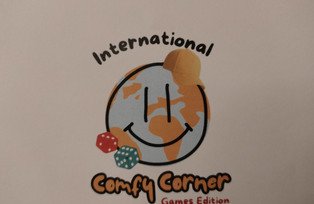
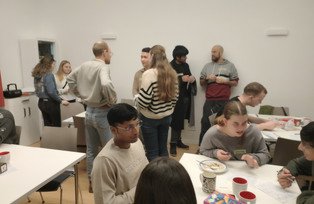
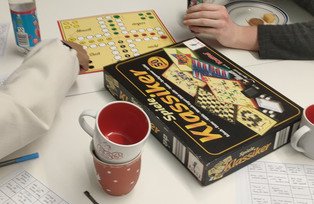
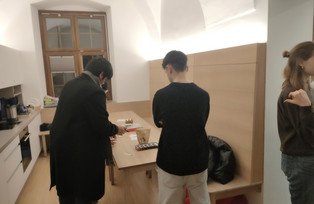
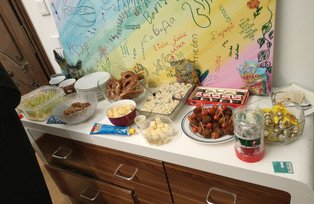
![[Translate to Englisch:] Prof. Barmeyer bei Vortrag Arte](/fileadmin/_processed_/5/e/csm_Bordeaux_VortragArte_bbd5a09ec4.jpg)
![[Translate to Englisch:] Brücke in Bordeaux](/fileadmin/_processed_/a/6/csm_Bordeaux_Bru%CC%88cke_fa542d5261.jpg)
![[Translate to Englisch:] Dr. Sauvage](/fileadmin/_processed_/f/7/csm_Bordeaux_Sauvage_00d10d2b6d.jpg)
![[Translate to Englisch:] Bourse](/fileadmin/_processed_/3/9/csm_Bordeaux_Bourse_8ed8222b2d.jpg)
![[Translate to Englisch:] Prof. Barmeyer und Dr. Sauvage](/fileadmin/_processed_/b/a/csm_Bordeaux_Barmeyer_Sauvage_f8fccb780e.jpg)
![[Translate to Englisch:] Forschungszentrum IRGO](/fileadmin/_processed_/8/a/csm_Bordeaux_IRG02_a442b48d14.jpg)
![[Translate to Englisch:] Forschungszentrum IRGO](/fileadmin/_processed_/6/7/csm_Bordeaux_IRGO_25784c80f9.jpg)
![[Translate to Englisch:] Universität Bordeaux](/fileadmin/_processed_/6/b/csm_Bordeaux_Universita%CC%88t_45c36efa14.jpg)
![[Translate to Englisch:] Garonne](/fileadmin/_processed_/7/c/csm_Bordeaux_Garonne_cd1e2a0d75.jpg)
![[Translate to Englisch:] IAE Bordeaux](/fileadmin/_processed_/6/e/csm_Bordeaux_IAE_719a1ca860.jpg)
![[Translate to Englisch:] IAE Bordeaux](/fileadmin/_processed_/f/3/csm_Bordeaux_IAE_Hof_ccb450f3db.jpg)
![[Translate to Englisch:] Montesquieu](/fileadmin/_processed_/2/3/csm_Bordeaux_Montesquie_c1ff5b739d.jpg)
![[Translate to Englisch:] Bordeaux Brücke](/fileadmin/_processed_/e/c/csm_Bordeaux_Pont_9467__8261ee1cfc.jpg)
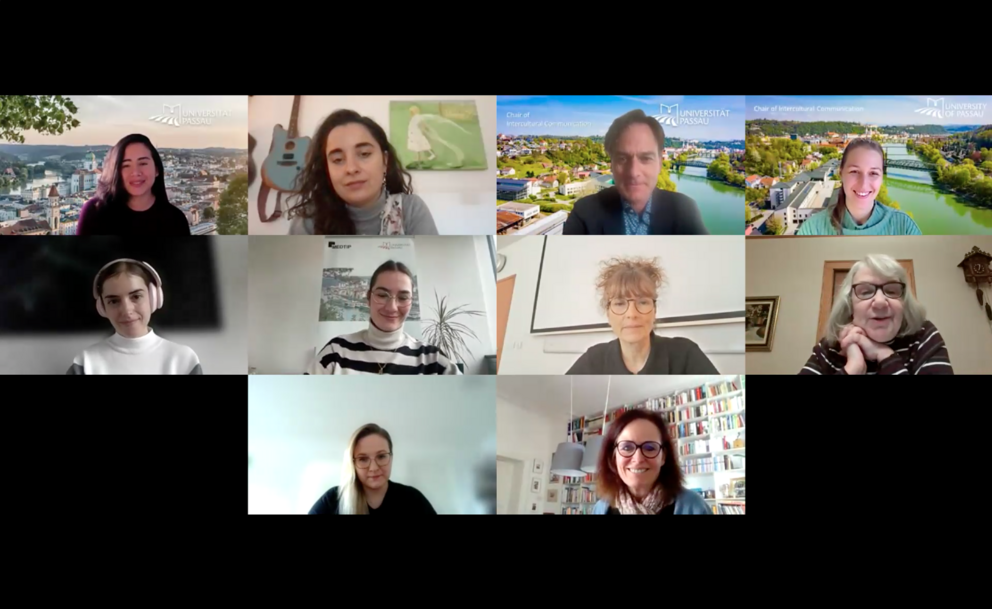
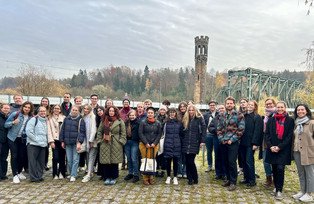
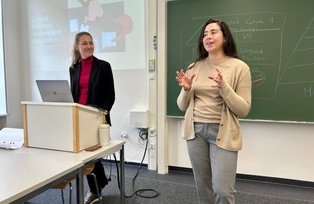
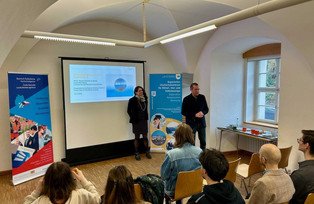
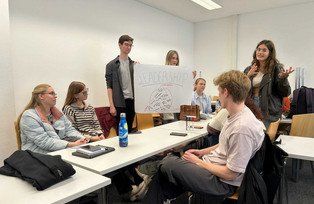
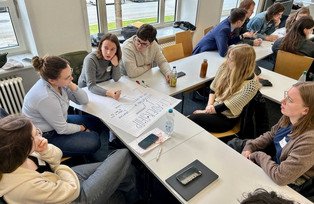
![[Translate to Englisch:] Japan - Ritsumeikan - Gruppenphoto](/fileadmin/_processed_/8/6/csm_Japan_Ritsumeikan_Gruppenphoto_699ce0a5ef.jpg)
![[Translate to Englisch:] Japan Ritsumeikan Vortrag Prof. Barmeyer](/fileadmin/_processed_/0/a/csm_Japan_Ritsumeikan_VL_Boundary_Spanners_2_1e0805d4ea.jpeg)
![[Translate to Englisch:] Tokyo](/fileadmin/_processed_/a/f/csm_Japan_Toyko_2_0b06fc05fb.jpg)
![[Translate to Englisch:] Prof. Barmeyer mit Bürgermeister Odate und Gästen](/fileadmin/_processed_/1/4/csm_Japan_Bu%CC%88rgermeister_Odate_42661546cd.jpg)
![[Translate to Englisch:] Japanischer Garten](/fileadmin/_processed_/1/9/csm_Japan_Garten_49e98cd9c0.jpg)
![[Translate to Englisch:] Japanisches Gebäude](/fileadmin/_processed_/e/8/csm_Japan_Geb%C3%A4ude_e0129e27b8.jpg)
![[Translate to Englisch:] Kyoto Universität](/fileadmin/_processed_/9/9/csm_Japan_Kyoto_Universit%C3%A4t__a95fd28740.jpg)
![[Translate to Englisch:] Vortrag Prof. Barmeyer in Kyoto](/fileadmin/_processed_/e/d/csm_Japan_Kyoto_Vortrag_5d2f70b8f8.jpeg)
![[Translate to Englisch:] Gebäude in Ritsumeikan](/fileadmin/_processed_/7/a/csm_Japan_Ritsumeikan_Building_769f323e7b.jpg)
![[Translate to Englisch:] Vorlesung Prof. Barmeyer in Ritsumeikan](/fileadmin/_processed_/1/8/csm_Japan_Ritsumeikan_VL_7b000f1bcd.jpg)
![[Translate to Englisch:] Vorlesung Prof. Barmeyer in Ritsumeikan](/fileadmin/_processed_/1/4/csm_Japan_Ritsumeikan_VL_3_Ebenen_a467f28726.jpg)
![[Translate to Englisch:] Vorlesung in Ritsumeikan](/fileadmin/_processed_/b/c/csm_Japan_Ritsumeikan_WS__aa119f079f.jpg)
![[Translate to Englisch:] Ritsumeikan Vorlesung](/fileadmin/_processed_/b/1/csm_Japan_Ritsumeikan_VL_3_Level_2_52e58d6f97.jpeg)
![[Translate to Englisch:] Shinkansen](/fileadmin/_processed_/b/6/csm_Japan_Shinkansen_d14247286f.jpg)
![[Translate to Englisch:] ZenGarten](/fileadmin/_processed_/3/7/csm_Japan_ZenGarten_ba34e5290d.jpg)
![[Translate to Englisch:] ZenTempel](/fileadmin/_processed_/e/c/csm_Japan_Zen_Tempel_1db7937009.jpg)
![[Translate to Englisch:] Tuzienka Chenet Ugarte und Studierende des Doppelmasterstudiengangs](/fileadmin/_processed_/c/a/csm_TDU_2025_46f1e9c441.jpg)

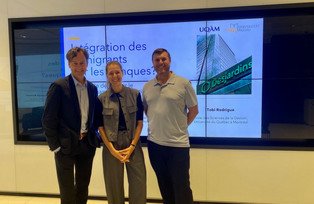
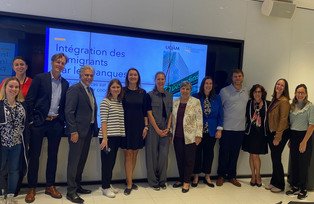
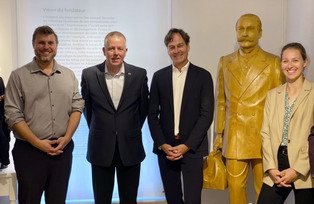
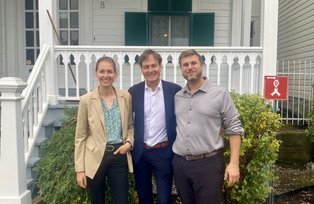

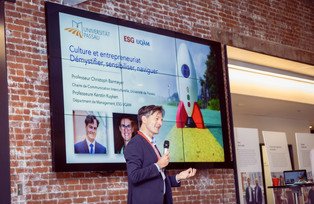
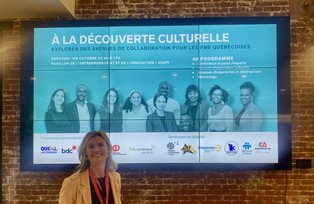
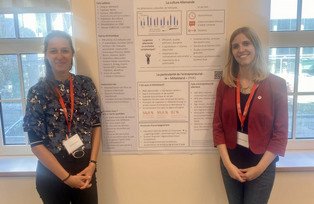
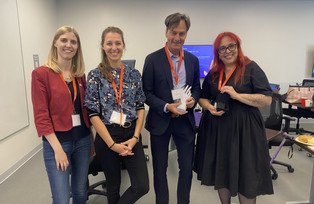
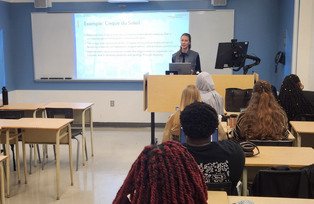
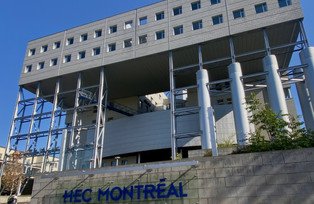
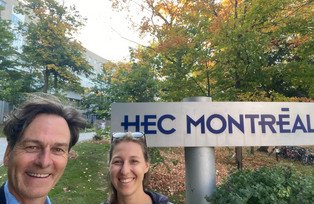

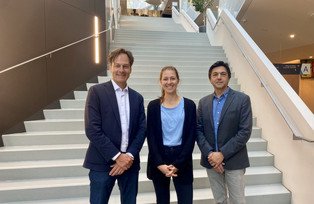
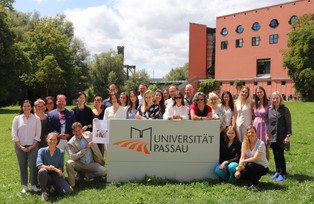
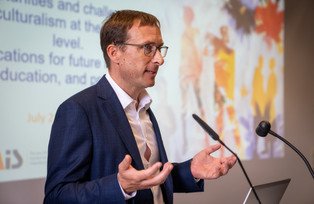
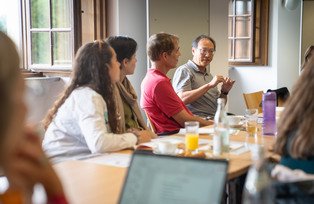
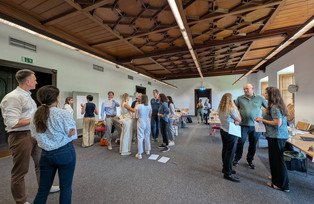
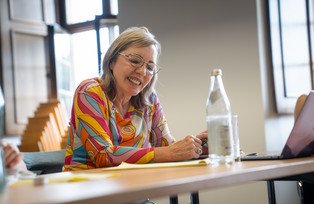
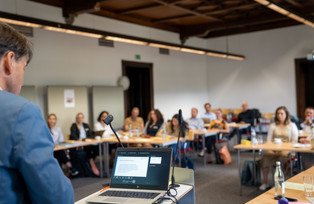
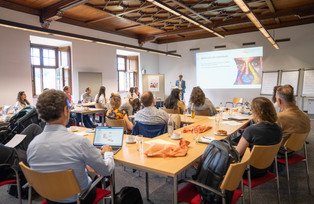
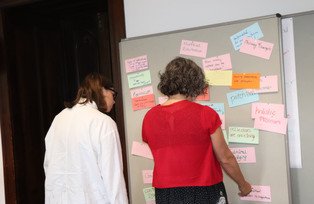
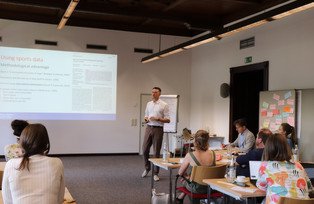
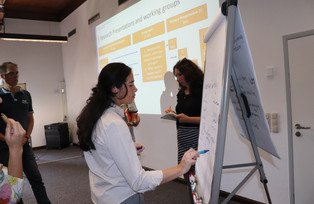
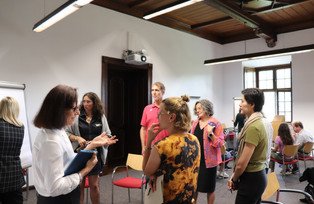
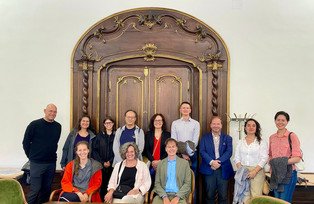
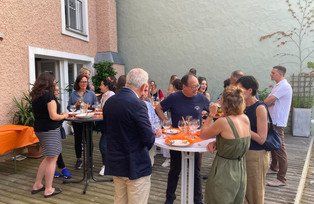
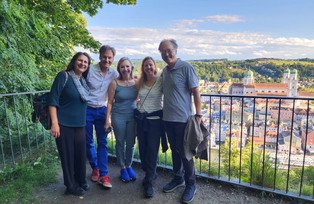
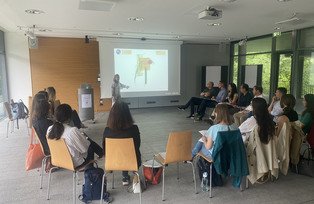
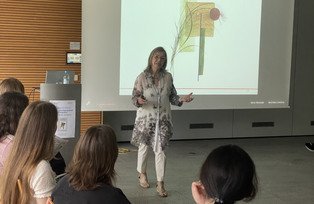
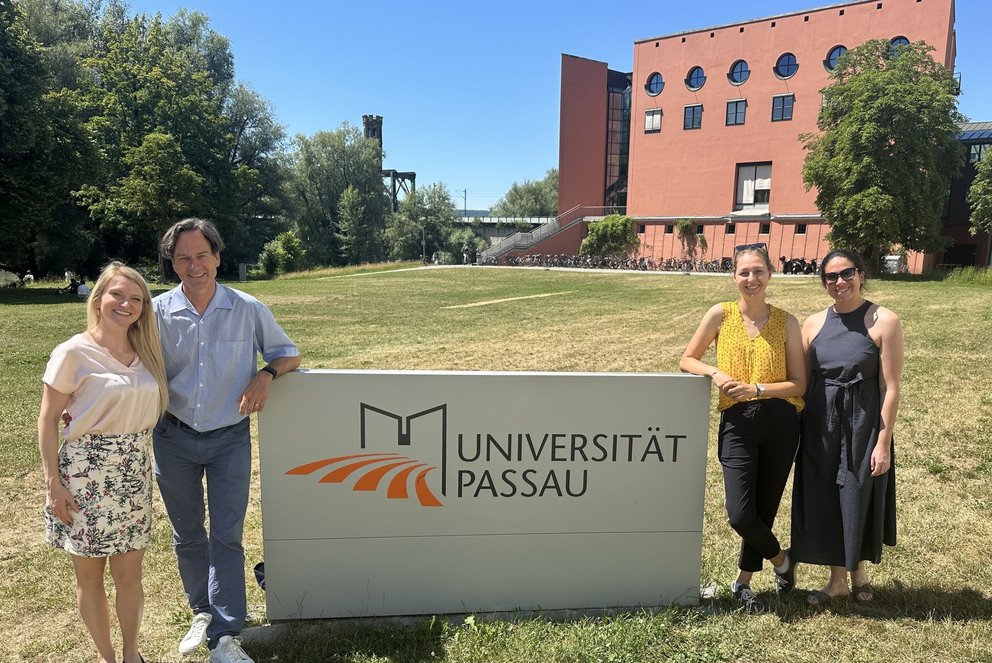
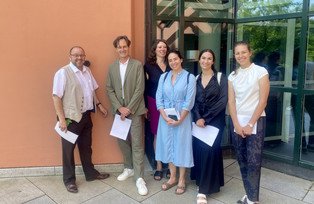
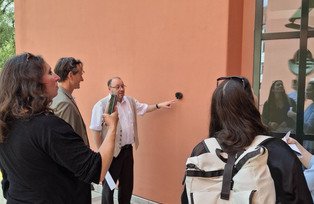
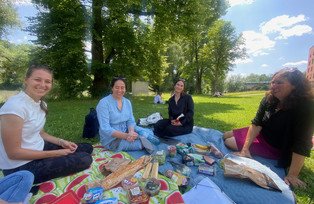
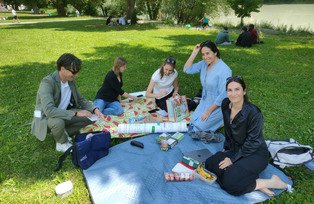
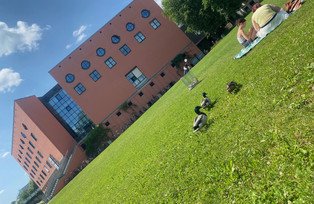
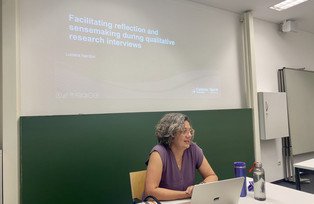
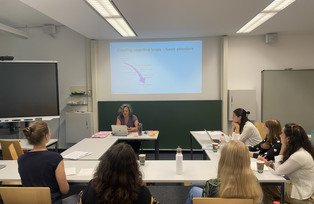
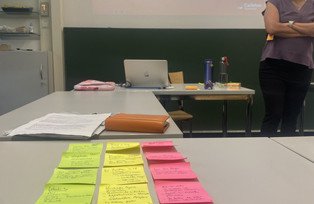
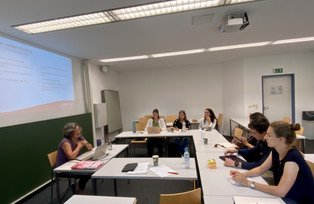
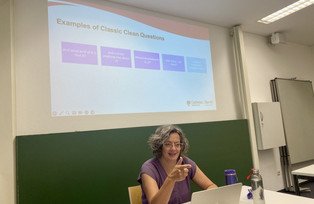
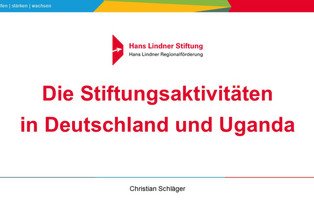
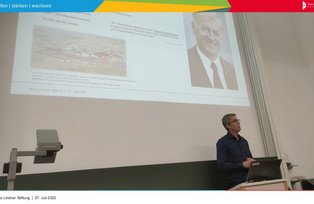















































































![[Translate to Englisch:] Dr. Emmanuelle Sauvage](/fileadmin/_processed_/3/b/csm_Erasmus_Dr._Sauvage_1_ef86a00710.jpg)
![[Translate to Englisch:] Dr. Emmanuelle Sauvage und Teilnehmerinnen des Doktorandenkolloquiums](/fileadmin/_processed_/4/6/csm_Erasmus_Dr._Sauvage_2_0d08ff8d76.jpg)

![[Translate to Englisch:] Plakat des Doktorandenkolloquiums](/fileadmin/_processed_/d/0/csm_Erasmus_Dr._Sauvage_5_60a90c182a.jpg)
![[Translate to Englisch:] Dr. Emmanuelle Sauvage und Teilnehmerinne des Doktorandenkolloquiums](/fileadmin/_processed_/2/d/csm_Erasmus_Dr._Sauvage_3_06f8a2aad4.jpg)
![[Translate to Englisch:] Elisabeth Huber, Professor Barmeyer, Dr. Emmanuelle Sauvage, Tuzienka Chenet Ugarte](/fileadmin/_processed_/d/0/csm_Erasmus_Dr._Sauvage_6_8bf83ba35c.jpg)





















